We probably all sometimes fantasize about a dream boss. A boss that lets you work from home whenever you want. A boss that doesn’t get mad when you’re late. A boss that gives you mental health days when you ask for them.
The reality is quite different. Many of us have to deal with bosses who are strict, frugal and care more about the company than its people. The boss in this story falls into the latter category. A Redditor named According-Air5665 shared a story on r/MaliciousCompliance where they outsmarted a stingy manager. The author demonstrated that sometimes HR and company policy can be on the side of the employee.
Office relocation, although it saves costs for the company, can mean long and tiresome commutes for the employees

Image credits: Annie Spratt (not the actual photo)
This Redditor, together with their colleagues, flipped the tables on their stingy manager

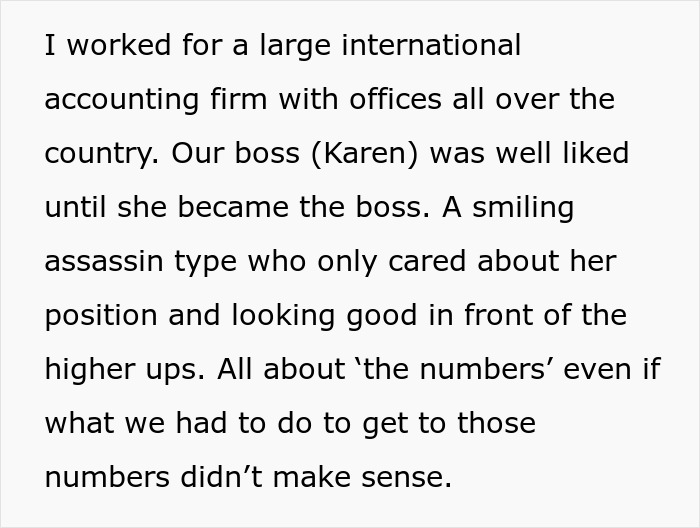

Image credits: Kier in Sight Archives (not the actual photo)
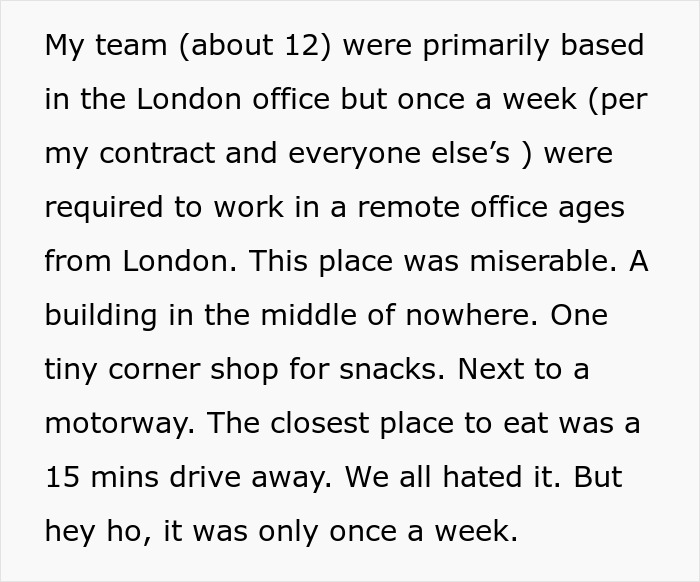


Image credits: Priscilla Du Preez 🇨🇦 (not the actual photo)
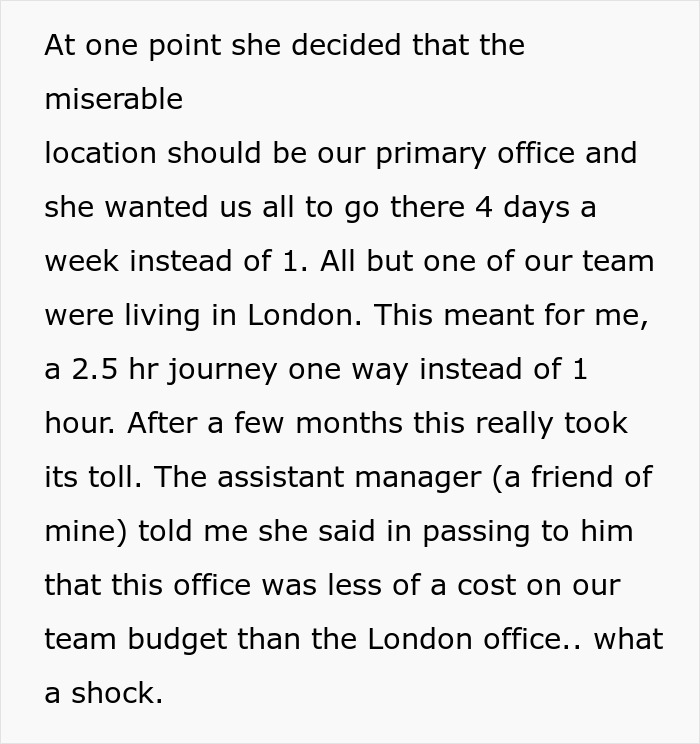
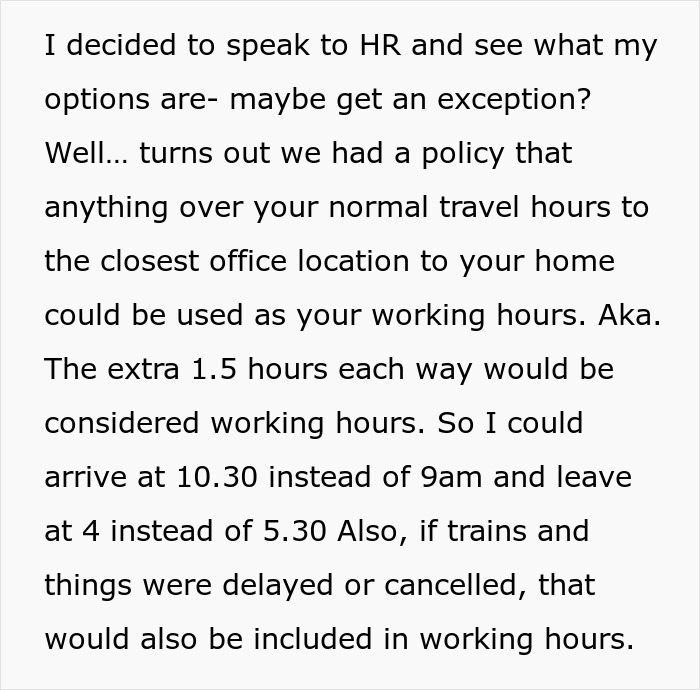

Image credits: Daniel Abadia (not the actual photo)
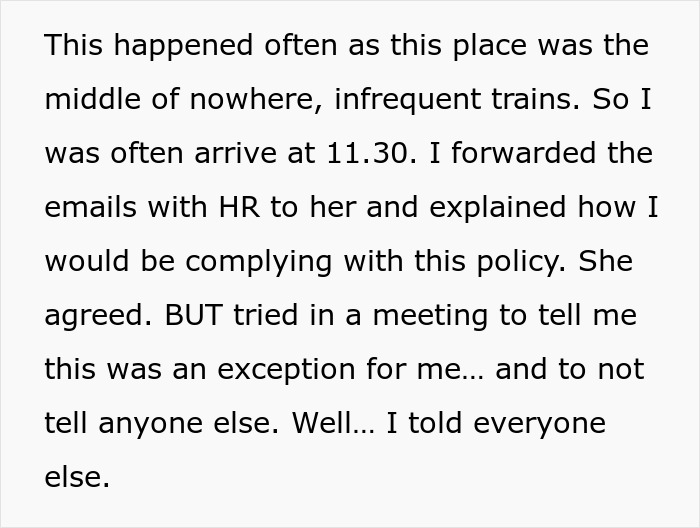
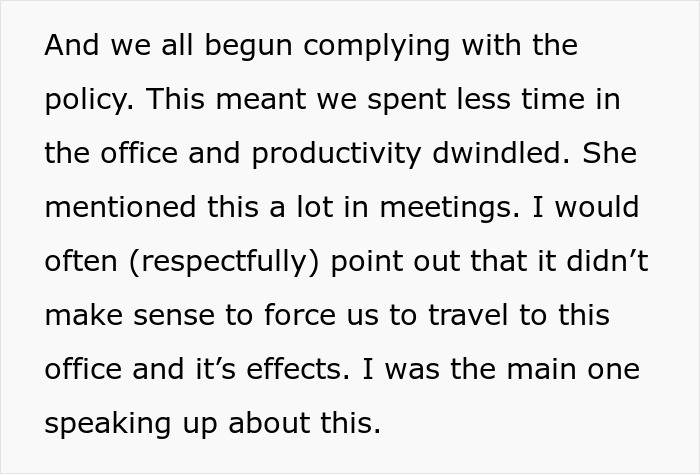

Image credits: Campaign Creators (not the actual photo)
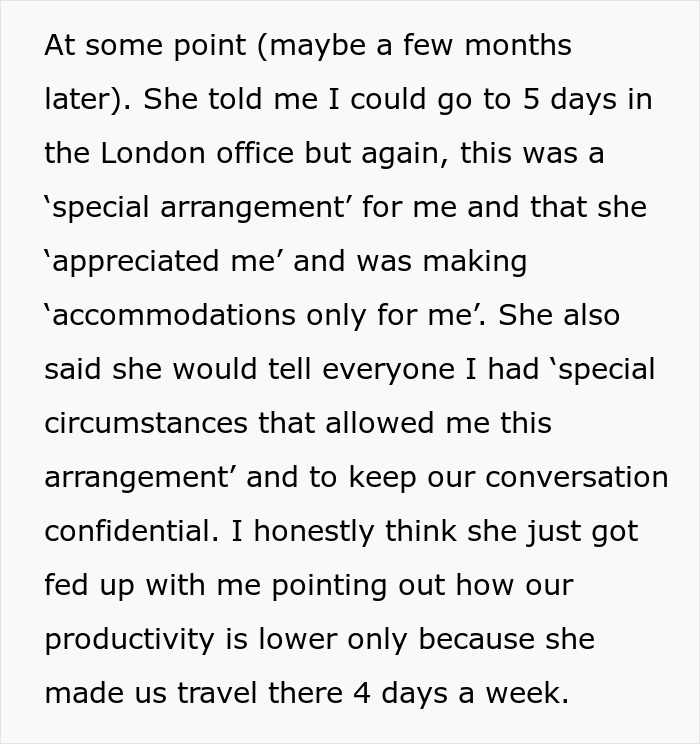


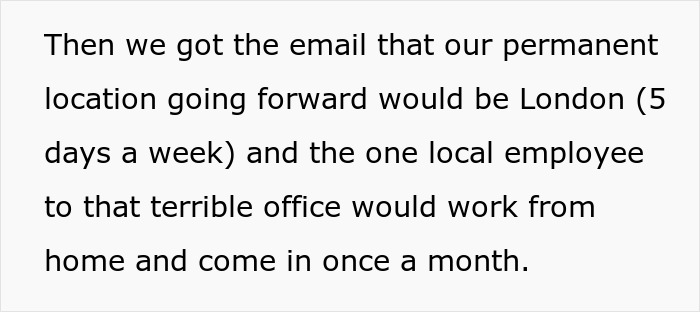

Image credits: Brett Jordan (not the actual photo)


Image credits: According-Air5665
What are an employee’s rights in the face of an office relocation?

Image credits: Headway (not the actual photo)
None of us are immune to office relocations. Whether it’s to cut costs or to be closer to customers, companies can and have the right to move their main offices. That’s why it’s useful for employees to know their rights in case a move is on the horizon.
Davidson Morris has some guidelines for employees about their rights in the case of an office relocation. Companies specify their relocation policy in the employment contract under the ‘mobility clause’. If an employee has a mobility clause in their contract, they will most likely have to move if the company says so.
There’s an exception if an employer is unreasonable in their relocation request. According to the UK public sector information website, “employers can normally force their employees to move to places allowed by the clause, unless this is completely unreasonable.” What falls under the category of ‘unreasonable’, you ask?
That can be the distance and time taken for an employee to travel to the new office. Whether the employee gets a notice about the relocation prior to the move also counts. The position of the employee and their seniority can also have an impact. An example could be asking a worker to move to another country with one day’s notice. Essentially, any request that might result in the deterioration of the employee’s quality of life can be thought of as unreasonable.
A company can dismiss its employee if they refuse to move. According to the UK public sector information website, compensation is available for those who:
a. match the criteria, e.g. have worked there for a certain amount of time;
b. are not getting any compensation because they’re not moving;
c. their reasons for refusing to relocate aren’t ‘unreasonable’.
The terms ‘reasonable’ and ‘unreasonable’ are open to interpretation here, so it depends on the situation. But some ‘unreasonable’ examples can be in cases where an employee refuses to move even if they can easily drive to the new location or reach it by public transport. If the commute is difficult or affects their children’s education, let’s say, they might consider it unreasonable.
Managers also have to ensure a smooth transition between the old office and the new

Image credits: krakenimages (not the actual photo)
As we’ve seen from the OP’s story, changing offices can be a hard and unwelcome change. “Employees may be concerned about their new commute, parking, the new workspace and where to eat lunch. Employees may be concerned about their families thriving in a new community if relocation is involved,” Jennifer Dublino writes for Business.
A crucial thing is to inform staff well beforehand. People may need time to find alternatives after their move. These can include kindergartens and schools for children, also other job opportunities for spouses.
Dublino recommends including employees in the decision-making process. “Solicit input and informal feedback about the move,” she writes. “The more included employees feel, the more they’ll be on your side. Ask for their suggestions about location, design and layout.
Answering questions and addressing concerns the employees have is also important. “Give them maps showing nearby parking, commuter routes, mass transit stations and restaurants,” Dublino advises. “If it’s a new community, include information on schools and their ratings, community centers, and neighborhoods.”
Managers should also update the employees about the office move. ER Logistics recommends informing staff about milestones, timelines, and key contacts. “Organize companywide and individual meetings to address everyone’s concerns, clarify the reasons behind the relocation, and provide an opportunity for questions and answers,” they write.
As many leadership experts agree, companies should put people before profits. After all, it’s the people who bring in profits for the company. That’s why it’s important to listen and to address employees’ concerns about such big steps as an office relocation. Otherwise, workers might start looking for loopholes that later derail the whole plan, just like in OP’s story.
Commenters had some questions, but the OP came prepared to answer them
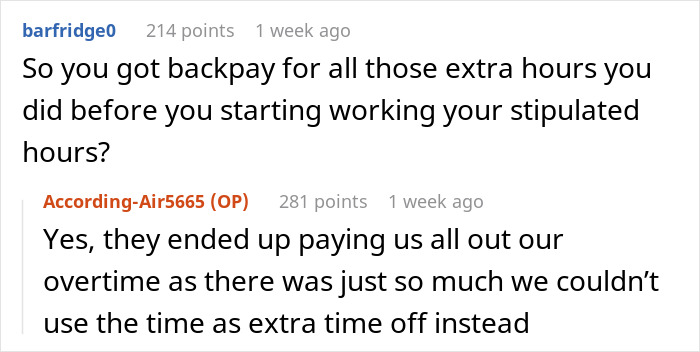




Most comments praised the OP and condemned the Karen manager

















